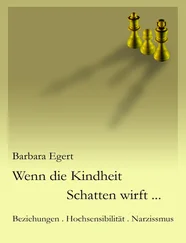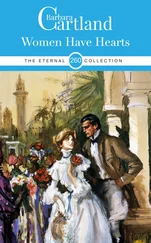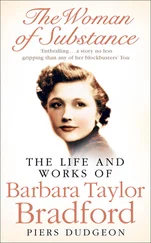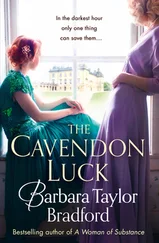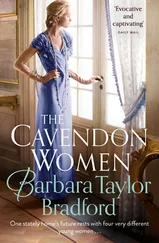Paul gazed at her, his heart bursting with his love. He thought: Oh, my darling, what cruelties and humiliations you must have endured and how bravely you have dealt with life.
Emma said, ‘You do understand now, don’t you, Paul? I mean about my not divorcing Arthur just yet. I don’t want our child to turn on me one day. I couldn’t bear a repetition of yesterday’s scene with Edwina.’
‘That would never happen. Not with our child. But yes, I do understand,’ he said, ‘I will do whatever you want, Emma.’
Their child, a girl, was born early in May of 1925, at a private nursing home in London. It was Paul who paced the waiting-room floor. It was Paul who took Emma in his arms after the delivery. It was Paul who chose the baby’s name. She was to be called Daisy after his mother.
The following day Paul visited Emma, his face wreathed in smiles, his arms filled with flowers and gifts. ‘Where’s my daughter?’ he asked.
‘The nurse will bring her in momentarily,’ Emma said, smiling radiantly.
He settled himself on the edge of the bed and embraced Emma. ‘And how’s my love?’
‘I’m wonderful, Paul. But you must stop spoiling me.’
‘You might as well get used to it. That’s the way it is going to be from now on.’ He took her hand in his and to her amazement he pulled off her wedding ring before she could protest, opened the window, and threw it out.
‘Good heavens, Paul, whatever are you doing?’
He did not respond. He reached into his pocket and took out a platinum wedding band. He slipped it on to her finger and then he added the great square-cut McGill emerald which had belonged to his mother and his grandmother before her.
‘We may not have had the benefit of clergy, but as far as I’m concerned you are my wife,’ he said. ‘From this day forward until death do us part.’
Since his return to England in 1923, Paul McGill had made his feelings for Emma obvious in every way. He was passionately in love with her and his emotional involvement transcended all else in his life. He admired her as well, and was filled with a sense of pride in her achievements. After the birth of their daughter these feelings were only intensified. She and their child became the core of his life, his reason for living. They gave shape and meaning to everything he did, to the way he ran his life and his enormous business enterprises. Old disappointments and defeats, and the hurts which had accumulated over the years, were swept away and he was filled with burgeoning hopes for the future. Daisy might not bear his name, but she was his child, of his blood, and in her he saw the continuation of the McGill line and the dynasty founded by his grandfather, the Scottish sea captain who had settled in Coonamble in 1852.
In all truth, he worshipped Emma and Daisy and he had no intention of letting either of them out of his sight, or his presence, for very long, despite the complications of their lives and the obstacles presented by their marital entanglements. He took matters firmly into his own hands in the late summer of 1925, when he purchased an unusually beautiful mansion in Belgrave Square, immediately giving the deeds of ownership to Emma. He then set about remodelling it into two flats, sparing no expense. The smaller bachelor quarters on the ground floor he retained for himself. The three floors above became an exquisitely appointed maisonette for Emma, Daisy, a nanny, a housekeeper, and a maid, whom he engaged. To the casual observer the two flats were entirely separate and self-contained, each having its own entrance. But they were linked by a private interior elevator.
They lived together, but discreetly so, with an eye to all the proprieties, for Emma was reluctant to flaunt their relationship in view of her other children and her responsibilities as a mother. Paul was constantly astonished at the duality in her nature. He would tease her, calling her a bundle of contradictions, and point out that she, who was so fearless in business and scorned what the world thought of her, was curiously sensitive about public opinion regarding her personal morals. ‘Once I’m divorced I won’t give a damn,’ she would temporize, and Paul would simply smile, realizing that her self-consciousness about their life sprang from the experiences of her early life.
As it happened, the divorce came sooner than anyone anticipated. In June, acutely aware of Emma’s overwhelming desire to protect their child, Paul permitted Emma to take Daisy to Yorkshire, agreeing she could be christened at a local church in Leeds. However, he insisted on being invited and travelled to Yorkshire with Frank and Natalie for the occasion. As a long-standing friend of the family, his presence was not unseemly, and, because of an unexpected turn of events, it actually went almost unnoticed. Several days prior to the christening, Arthur Ainsley’s mother collapsed and died of a heart attack. The baptism, following so quickly on the heels of the funeral, was a glum affair and Frederick Ainsley and Arthur were so grief-stricken they were hardly aware of the proceedings or of the other guests, and, also, Arthur had no interest in the event. Daisy was duly christened without incident and the next day Emma took her back to London. Three months later Frederick Ainsley, old, frail, and long in ill health, followed his wife to the grave. Arthur came into his inheritance and, in an unprecedented show of gallantry that stunned Emma’s brothers, he allowed her to divorce him on the grounds of adultery. Emma was not stunned. She had cannily bought Arthur’s gallantry for ten thousand pounds.
Once the decree nisi was granted, Emma’s life changed radically. She brought the twins, Robin and Elizabeth, to live with her in Belgrave Square, and, just as she had guessed, Arthur made no objections. Apart from being happy to be free of him at last, she also welcomed the idea of bringing up the twins without his influence.
Kit, who was at boarding school, spent half terms and vacations with Emma and made no secret of the fact that he approved of Paul and was devoted to him. Nor did he shed any tears about the abrupt disappearance of Arthur Ainsley from his young life. Emma also reorganized her business drastically, so that she could spend most of her time in London. Winston was appointed managing director of the Yorkshire shops and the mills, and Emma supervised her northern industries from her headquarters at the Knightsbridge store, making a monthly trip to Leeds, where she spent five hectic days, working long hours with Winston.
She and Paul were as circumspect as possible, especially in front of the children, but as time passed no one seemed to care about their unusual living arrangements and their rather extraordinary household filled with her diverse children by different fathers. Very early Paul had established himself as the titular head of the household and with his strength, plus his inherent gentleness, he was both respected and adored by the children, and he quickly became the father figure to them all. Slowly Emma began to relax. Paul had patiently explained to her that their combined wealth set them above the usual conventions, making them invulnerable to social censorship, and she admitted the truth in what he said. Her natural self-confidence and courage soon overcame her earlier misgivings.
Paul and Emma were inseparable. He bedecked her in magnificent jewels and furs and lovely gowns. He entertained on a lavish scale with her at his side as his hostess. They went to the theatre, the opera, concerts, dinners, and parties. They mixed with the wealthiest and the most influential people in London and in other cities across the world-politicians, tycoons, socialites, and men and women from the arts and letters on three continents. He took her to the capitals of Europe when he travelled, whether for business or pleasure. She went with him to New York and to Texas, where his oil fields were located, and twice she accompanied him on his annual trips to Australia. Just as she had fallen in love with New York and Texas, so, too, was she captivated by the Antipodes. Paul was still endeavouring to gain his freedom, but continually met implacable opposition from Constance, who would not agree to a divorce. This was the one thing that marred his happiness. Although he had legally adopted Daisy, and had provided for both her and her mother, he desperately wanted to marry Emma and put their lives in order. However, so secure was Emma in their relationship by this time she was unperturbed by the situation and constantly tried to alleviate Paul’s anxiety. Now it was she who told him to relax and not to fret so much, optimistically remarking that things would work out in the end, reiterating her love for him and reassuring him of her happiness.
Читать дальше
Конец ознакомительного отрывка
Купить книгу


